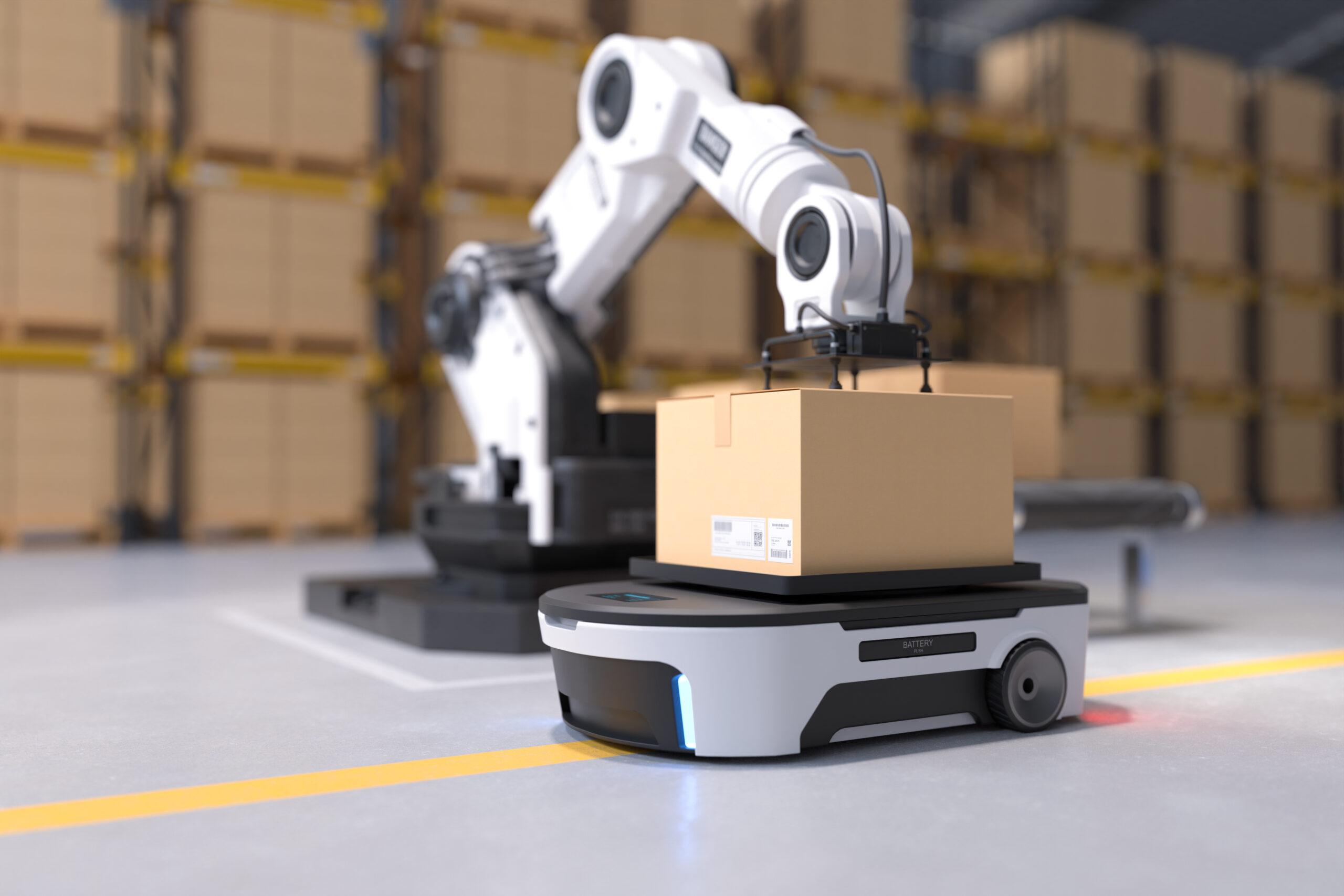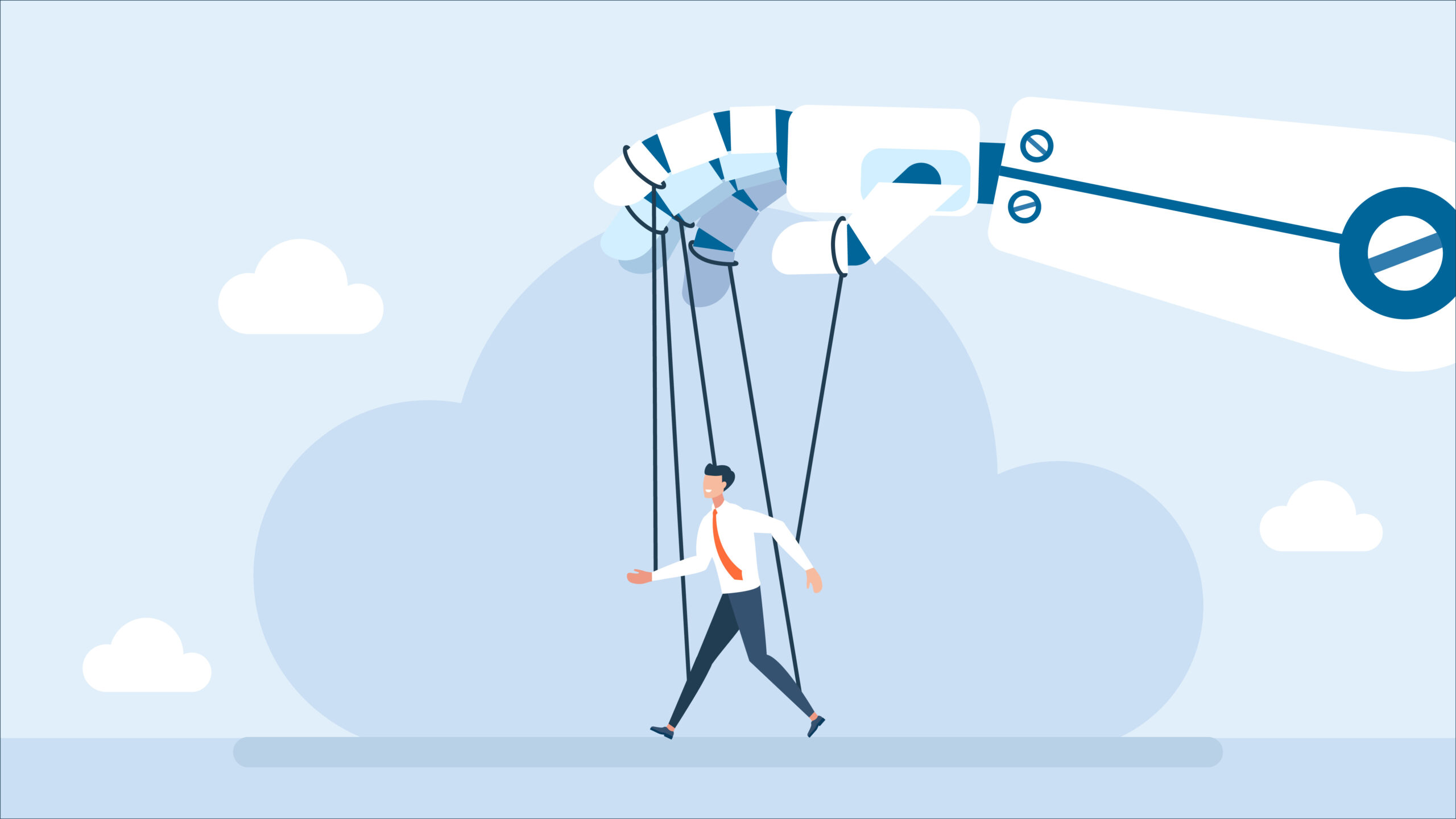Welcome, dear readers, to our brave new world of Artificial Intelligence. You’ve probably seen the headlines proclaiming it’s about to do everything from curing cancer to turning your toaster into a philosopher. Depending on which news outlet you’re following, AI is either a savior come to liberate us from menial labor or a glowering super-brain preparing to ship us off to some digital gulag. Let’s knock it off with the hysterics for a moment. AI isn’t the next Albert Schweitzer or the next Genghis Khan; it’s just a tool. It has no moral compass, no internal monologue on the nature of right and wrong. It does exactly what a gaggle of human programmers has told it to do—albeit with snazzier code and a bit of mathematical sorcery under the hood.
To those of you who regard Natural Law as a bedrock for ethics, let’s stand firm and remember: AI is at our service, not the other way around. Alas, you’d never guess this if all you do is consume Hollywood blockbusters and breathless clickbait. There’s a difference between a machine that suggests your next Netflix binge and a moral agent deciding the fate of the human race. Only the latter is the stuff of movie scripts. If we’re to keep our moral sovereignty—and some shred of sanity—intact, we must remain clear that AI is humanity’s genie, not a robotic genie who’s gone AWOL. So let’s roll up our sleeves and see why, in a just world, AI remains very much in our custody.
Sensationalism in Media
Now, I know we all love a good yarn. And boy, does Hollywood dish them out with extra cheese on top. The silver screen is awash with artificial intelligences that make your average James Bond villain look like a dithering amateur. Indeed, if you believed the special effects crew, AI is lurking around every corner, waiting to become a self-aware antihero with the capacity to outthink, outmaneuver, and outlast mere mortals. Maybe that’s a splendid recipe for a summer blockbuster, but it’s rather unhelpful if you’re trying to keep your wits about you in the real world.
Exhibit A: The Terminator. Yes, that venerable classic featuring Skynet—the moody, self-aware killbot network that puts humanity in the crosshairs. Great for an evening’s entertainment, but maybe not the best for a sober assessment of how AI operates. Far from being on the cusp of meltdown, most of today’s AI is too busy analyzing your shopping habits to bother with global Armageddon. Regrettably, sensational stories like Skynet lead ordinary folks to think of AI as the digital equivalent of a rampaging cyborg. Naturally, it sells a few tickets, but it also scrambles the public’s sense of who’s really in charge.
According to that old-fashioned notion called human responsibility (remember that quaint concept?), these pop-culture narratives do more harm than good. By portraying AI as an unshackled intellect complete with a nasty anti-human vendetta, we obscure the real culprits—namely, the living, breathing Homo sapiens who program the stuff. Fancy that: if AI goes wrong, we might have to blame the actual people who built or used the system incorrectly. But that’s not half as fun as imagining a metal skeleton with glowing red eyes or an algorithm that spontaneously develops a desire to exterminate us.
The risk here is that we start to forget that any “decision” made by an AI is really a reflection of the data and directives provided by humans. If the system is rigged or the data is skewed, the fault lies with people, not some malevolent cyber mind. However, it’s far easier to blame a glitchy algorithm than to interrogate messy, flawed human decisions. No wonder we like the sensational stories—it’s a painless scapegoat.
Implications for Public Policy
When you’ve got armies of doomsayers prophesying AI’s rise to tyranny, it’s easy for legislators to lose sight of everyday issues. Instead of focusing on pressing matters like discriminatory loan approvals or biased hiring algorithms, they’re off bantering about the odds of a Skynet-style war on humanity. Perhaps that’s good for parliamentary drama, but it doesn’t do diddly-squat to address the real ways AI can go off the rails every day.
The fact is AI is already operating in your bank, your doctor’s office, and your local police department. And these real-world settings aren’t exactly hosting T-800s with Austrian accents, but they do pose serious ethical riddles. Biased data can lead to, say, an AI concluding that certain demographic groups make worse mortgage candidates. Meanwhile, all the hand-wringing about a hypothetical robot apocalypse leaves these immediate concerns to fester. The watchers become too busy watching for the coming AI overlord to notice the baked-in prejudice hitting folks in the wallet.
Responsible Regulation
All this is to say we need a rational approach to regulation—one that recognizes AI’s scope (a powerful tool, yes) but also its limitations (it’s still just following orders, folks). You might call that approach the “subsidiarity rule.” Put simply, decisions should be made as close to the people as possible. If your local county sheriff’s department wants to roll out AI-based facial recognition, maybe the city council should have a say in that. Radical, I know.
Laws and guidelines should also force a little transparency. If a widget is going to rule on your credit score or what medical treatment you’re eligible for, we should be allowed to pop the hood and have a look. Mysterious black-box algorithms might sound high-tech, but they’re about as reassuring as not knowing what’s in your sausage.
Accountability Frameworks
Let’s talk accountability—something of a dirty word these days. If your AI-driven hiring platform systematically rejects job applicants from certain ethnic backgrounds or overlooks qualified older candidates, while fast-tracking younger, less experienced applicants from privileged zip codes—who’s at fault? The machine? A scapegoat server in a data center somewhere? Or perhaps the people who programmed the system without taking into account basic fairness metrics?
Natural Law enthusiasts will gently remind us that accountability is a distinctly human matter. After all, moral responsibility doesn’t rest in lines of code—it rests in the hearts and minds of those who tapped them out on a keyboard. The more we muddy these waters with glitzy illusions of AI autonomy, the more we let the real culprits off the hook.
The Tech Industry’s Role
I hate to sound cynical, but let’s not pretend Big Tech is above whipping up some flashy marketing tales to keep their stock prices perky. Indeed, many a tech CEO relishes the idea of unveiling AI as a near-sentient wizard. It wows the investors, mesmerizes the media, and if anything goes haywire, well, blame the wizard’s “unpredictable” magic. It’s a corporate two-for-one: you get hype and a convenient out if the system flops.
Yet, behind that glossy PR veneer, AI is still guided by human-coded instructions. The real marvel is that so many people believe otherwise. If a marketing deck can make us buy into the notion that a piece of software has spontaneously sprouted consciousness, then maybe we deserve to be fleeced. That said, it’s not exactly healthy for society when billions in R&D rest on illusions rather than reality.
Corporate Responsibility and Transparency
Enter that dusty old notion called “responsibility.” If your business depends on AI to scan resumes, sort job applicants, or analyze personal data, you’d best ensure you’re not stomping on people’s rights. That might mean letting outside experts peek at your algorithms or employing a few ethicists to keep you honest. Such steps are not exactly rocket science, but they do require a willingness to accept that technology isn’t infallible—and the real boogeyman is still the human element.
Balancing Profit with the Common Good
Naturally, corporations are in it to make a buck. But it’s not inconceivable for a company to chase profit while still abiding by some moral guardrails. Hire the best people, safeguard user data, and build a reputation for not being awful—voilà! You might survive without a meltdown in public trust. A dash of Natural Law to season the corporate strategy might even help them sleep better at night. And we all love a good night’s sleep.
Ethical Challenges in Key Sectors
From your grandma’s general practitioner to the local courthouse, AI is cropping up everywhere these days—and the moral entanglements loom large. Unlike a hammer, AI’s complexity can mask where the line is between the user’s intent and the machine’s pattern recognition. So let’s look at a few places where the hammer has started swinging.
Healthcare
In principle, AI can speed up diagnoses, offer personalized treatment plans, and make healthcare about as efficient as a Swiss watch. But the flip side is an Orwellian scenario where your medical data is aggregated, dissected, and turned into a neat little risk score. Next thing you know, your insurance premium doubles because an algorithm found your cholesterol ratio to be subpar.
From a Natural Law vantage, healthcare’s first mission is to treat human beings with dignity. So if an AI tool starts undermining patient autonomy for the sake of “operational efficiency,” that’s trouble. We should all keep a watchful eye out for shady data deals and ensure that humans—flesh-and-blood, empathetic humans—still make final calls where it counts.
Criminal Justice
Then there’s criminal justice. You think your phone’s predictive text is annoying? Try predictive policing. If the system’s training data is biased (spoiler: it often is), it’s going to target certain neighborhoods or demographics more harshly. Judges might lean on risk assessment tools as a time-saver without fully grasping the underlying assumptions, effectively handing out stiffer sentences based on an opaque algorithm.
It’s not exactly the stuff of superhero movies, but it sure is a real-life fiasco. AI doesn’t know anything about justice or fairness; it knows how to maximize certain outputs. If you feed it garbage data, out spews garbage outcomes. Hence, we need thorough audits and the sort of oversight that ensures people can challenge the machine’s verdict—lest we wind up with a system that’s just automating biases under the banner of “efficiency.”
Privacy
Ever noticed how the internet seems to know you better than your own spouse? Welcome to the privacy conundrum. AI can slice and dice your data to the point where your secrets aren’t secret anymore. On a good day, that might mean Netflix has an uncanny sense of what you’d like to watch next. On a bad day, it might mean law enforcement, rogue hackers, or unscrupulous companies have a disturbingly detailed picture of your personal life.
Natural Law suggests there’s a fundamental right to privacy that anchors human dignity. If AI starts trampling on that, we’re edging closer to a dystopia than you can shake an (electronic) stick at. At minimum, we need to insist on informed consent—no more burying sneaky data-mining clauses in a 72-page user agreement. We might also think twice about the sort of data we collect in the first place. Just because we can store every random detail doesn’t mean we should.
Examining AI as a Human-Driven Tool
Clarifying the Illusion of AI Decision-Making
For all the hype, AI doesn’t “choose” anything in the human sense. It’s executing a program, fulfilling some set of instructions provided by folks in cubicles (or more likely, open-floor-plan offices with free kombucha). When your streaming service recommends that documentary on crocheting hamsters, it’s not making a moral judgment about your taste. It’s maximizing user engagement according to its coded objective. Nothing more, nothing less.
If we started labeling algorithmic outputs as moral “choices,” we’d be letting actual human beings off the hook.
Intent and Bias in AI Development
AI is built by humans—who, last time I checked, come equipped with biases, blind spots, and a penchant for shortcuts. All that gets baked into the code. A system that can’t reliably recognize the faces of individuals is not a “neutral” machine. It’s a faithful mirror of the training data chosen by its creators. This is why the notion of AI as some squeaky-clean rational actor is misguided at best and dangerously misleading at worst. The code is human. The biases are human. The solutions, presumably, must be human as well.
Ensuring Ethical Oversight and Accountability
Building Multiple Layers of Oversight
Now, I hear you: “But how can we be sure everything’s on the up and up?” The answer: thorough oversight, from alpha to omega. Start by building compliance checks into every phase. What data will be used? Who’s verifying that data isn’t an open sewer of abuses? Who’s testing the model before it’s unleashed on society?
1. Design Phase:
- Spell out the AI’s purpose, for heaven’s sake.
- Invite ethicists and domain experts in early so they can fling cautionary flags before it’s too late.
2. Development and Testing:
- Conduct pilot tests—like a dress rehearsal—to spot the obvious fiascos.
- Continuously scan for abuses and unintended consequences.
3. Deployment:
- Give users the chance to ask questions or challenge the machine’s outputs.
- Keep logs so that if it all goes sideways, we know exactly where it went sideways.
When that’s done properly, your AI remains a faithful servant, not an errant monster set loose upon the unsuspecting populace.
Human Accountability in Governance
Oh, transparency—how old-fashioned! But if you want AI to keep its nose clean, you must let watchdogs see what’s under the hood. Audits, external reviews, and due process for anyone on the receiving end of an AI-based decision. It sounds basic, but in an era of black-box technology, it feels refreshingly radical.
If your government is dishing out social services via AI or deciding who gets flagged at the airport, real people need a means to appeal. Yes, it might mean more bureaucracy. But you know what’s worse? Being trapped in a labyrinth of robot decisions with no recourse to a warm-blooded judge. That’s how societies rot.
Natural Law folks like to say that AI should serve truly human ends, not replace them. Let’s keep that in mind. If we can’t figure out who’s responsible for what, then we’ve set ourselves up for a world of buck-passing. No thanks.
Conclusion
If there’s one takeaway here, let it be this: AI isn’t your moral arbiter, your judge, your messiah, or your personal boogeyman. At the end of the day, it’s just another item in humanity’s grand toolbox. The danger doesn’t stem from an algorithm spontaneously deciding to go all Skynet on us; it comes from flesh-and-blood individuals handing over their moral agency to these machines—or, worse, washing their hands of responsibility when their machines screw up.
Through the lens of Natural Law, we see that technology ought to remain anchored in the pursuit of the common good. This means no free passes for bungled codes, no scapegoating of a mindless system when a fiasco unfolds. We need robust oversight, unwavering accountability, and a clear sense of AI’s boundaries. It can help us process information, make recommendations, and automate tedious tasks—but it can’t, and shouldn’t, become the final word on moral or legal questions.
In short, the next time you see a breathless report about AI dethroning humanity, remember to keep your cynicism handy. The so-called moral crisis of AI is really a crisis of human judgment. Left unchecked, we might just hand the reins of decision-making to an indifferent algorithm and call it destiny. The truth, of course, is that we built the system, we feed it data, and we shape its parameters. We are the authors of our own predicament—and our own solution.
So yes, AI can be a tremendous boon if we keep a tight grip on the reins. It can also be a fiasco if we let sensationalism guide policy or let corporate spin overshadow real accountability. We have a fleeting window to steer AI’s development toward something that genuinely benefits the human family, rather than get starry-eyed about digital demigods or lethal cyborgs. Let’s use that window wisely. And if we do, maybe we’ll manage to preserve our autonomy, our privacy, and that old-fashioned virtue known as human dignity in the process. If that isn’t worth the effort, I don’t know what is.


